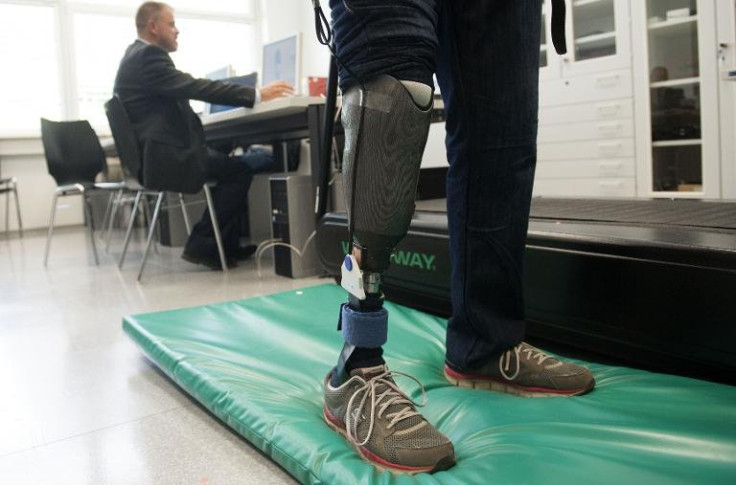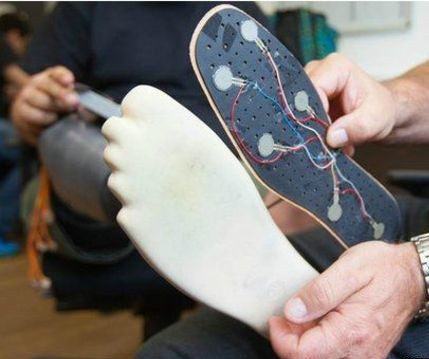World's first 'feeling' prosthetic limb returns sense of touch to amputees

The world's first artificial leg capable of offering the sensation of touch to its wearer has been developed by researchers in Austria.
The prosthetic connects six sensors on the base of the limb to the remaining foot nerve endings in the wearer's stump, which are then rewired to healthy tissue in the patient's thigh.
Research into the limb was carried out by Professor Hubert Egger at the University of Linz, who made headlines in 2010 for his work on the world's first prosthetic arm controlled by the brain.
"In a healthy foot, skin receptors carry out this function but they are obviously missing here," Egger said. "However, the information conductors – the nerves – are still present, they're just not being simulated.
"The sensors tell the brain there is a foot and the wearer has the impression that it rolls off the ground when he walks. All things considered, the procedure is a very simple one given the results."

Applying pressure to the sole of the prosthetic's foot sends signals to the wearer's brain, allowing them to feel what is beneath it.
Amputee Wolfgang Rangger from Austria has spent six months trying out the limb and has praised it for improving his ability to walk, run, cycle and climb.
The limb has also eradicated the pain that Rangger continued to feel following the removal of his right leg in 2007.
"I was barely able to walk with a conventional prosthesis, I didn't sleep for more than two hours a night and needed morphine to make it through the day," Rangger said.
"It's like a second lease of life, like being reborn. It feels like I have a foot again. I no longer slip on ice and I can tell whether I walk on gravel, concrete, grass or sand. I can even feel small stones."
Egger notes that there are still risks involved with attaching the prosthetic limb, most notably the inability for the remaining nerves to reconnect properly.
Partnerships are currently being sought to help lower the market price of the limb, which currently stands at between €10,000 (£7,300) and €30,000.
"People with amputations aren't patients in the traditional sense, they aren't sick – they're just missing a limb," Egger said.
"By giving them back mobility, they also regain their independence and are able to reintegrate into society. That's what I work for."
© Copyright IBTimes 2025. All rights reserved.






















